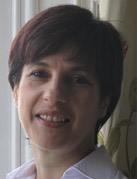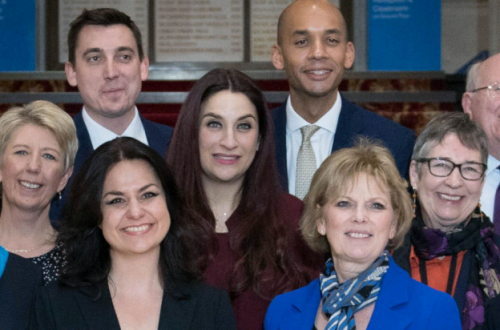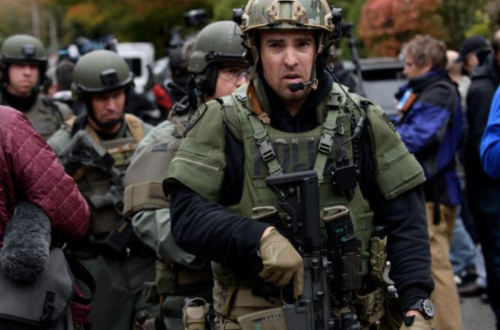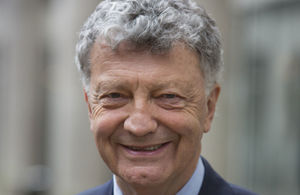Meet Sarah Glynn.
She is – or possibly “has been” – Lecturer in Human Geography at the University of Edinburgh, a Teaching Fellow in Geography at St Andrews, and has an honorary research fellowship at the University of Strathclyde.
Here’s an extract from her work:
In January 2002 I attended a meeting of Al-Muhajaroun in Ilford, where I observed first hand how idealistic young British Muslims were persuaded to take action on behalf of their Muslim brothers and sisters. Tony Cox, who was with me and who worked for the far-left Militant Tendency in the 1980s, observed that, despite the obvious differences – especially in the proposed solutions – it reminded him of Militant meetings. It was not just the young men in their working clothes in the stark hall, but the serious and focussed class-based rhetoric and the promise of being part of a structured resistance. In the paper I published later that year I wrote: ‘ In his condemnation of hoarding money, his denouncement of interest as the ‘ball and chain of economic enslavement’ and his repeated references to Muslim oppression, the speaker at Al-Muhajiroun’s East London meeting appealed to a radical instinct for a fairer society .’ (Glynn 2002: 985) I argued in that paper, that whether they chose the way of practical grassroots action and reformism offered by the Young Muslim Organisation or opted for a more revolutionary path, those who turned to Islamism were looking for a sense of purpose in an alienating world that offered them little hope for the future. And, crucially, I linked the turn towards political Islam to the weakness of the socialist movement, and its inability to provide a force that working-class Muslim youth would recognise as a credible channel for their anger and frustrations. It may be contended that this does not account for the large number of middle-class Muslims attracted to Islamist movements, but radical and revolutionary movements always attract a section of middle-class support, especially among students, and this is particularly true for minority groups facing a level of discrimination that cuts across the classes – as exemplified by the high number of Jews in Russian revolutionary movements in 1917. That radical Islamic groups appeal to many of the same sources of discontent as radical socialists is nicely illustrated by the leaflet distributed by Hizb ut-Tahrir at the big anti-war march in London in 2003. The main focus of its attack is capitalist colonialism, and it is not until the final sentence that it invites the reader ‘to study the Islamic Ideological solution’.
Her conclusion, I should add, is that the success of Islamist politics is linked to the “deliberate suppression of any effective secular Left alternative to the materialism and inequalities of free-market capitalism”.
It goes without saying that Sarah Glynn is also an activist with “Scottish Jews for a Just Peace”.
Here she is on a demonstration outside the Israeli Embassy, at which frightening racist chants were directed against Jews:
The demonstration was peaceful and no arrests occured. However, as protesters stood in the pouring rain they chanted “Khyber al-Yahud” – an Islamic battle cry which celebrates the death and defeat of Jews in the battle of Khyber in 629.
They also chanted “From the river to the sea, Palestine will be free” – a chant which calls for the destruction of Israel. Other chants called Israel “terrorist” and “apartheid”, one saying “Israel if you want war, don’t keep knocking at the door.”
A small boy, given the microphone by protesters shouted: “Jews! How can you take this land?
He added: “There was a boy, only five years old in Gaza, and he was kidnapped by Jews. Can you believe that?”
The activists surrounding the boy, conscious of the media droves in front of the protest barriers, swiftly confiscated the microphone.
A man in a red cagoule had a quiet word in the boy’s ear and gave him back the microphone. The boy added: “The Jews have also been helping us too. People all over the world help us.”
She is an outspoken supporter of the convicted racist, Paul Donnachie, and defends the taking and soiling another person’s property, in their bedroom, at 1.30 in the morning, as a political protest:
Dr Glynn, a teaching fellow at St Andrews, wrote to Fife’s The Courier newspaper berating the verdict, which, she said, had “moved us a step closer to an Orwellian police state”.
She wrote: “A national flag is a political symbol. Desecration of a flag is a long-established method of making a symbolic protest against a political regime.
“Paul Donnachie’s protest was directed not against Chanan Reitblat as a person or as a Jew, but against the political position that he so clearly supported. It was not racist. The way that he chose to protest was hardly in very good taste, but that should not be a matter for the courts.”
Let’s take a step back here. If an EDL supporter were to come into the bedroom of a Muslim student, take his Quran or some other symbol of his identity, and wipe his cock on it – we would all regard that as an attempt to terrify and intimidate that student, directed specifically at his membership of a cultural group.
What is Sarah Glynn’s reaction?
She offered to give evidence in the racist Donnachie’s defence. When she was refused, she attacked the victim’s family
Due to be called was Jewish politics lecturer Sarah Glynn who was close to tears as she left court and told Reitblat’s family their actions were ‘scandalous.’
She said: ‘As Jews you should be ashamed. This is devastating.’
According to Stan Crooke, of the revolutionary socialist Alliance for Workers’ Liberty:
Just for good measure, she also told a rabbi who had given support to Reitblatt that he was “destroying Judaism.”
Here is Stan Crooke’s conclusion on Donnachie:
Suppose, for a moment, that a Black person complained of abuse and that there was at least a perceived racist element to that abuse.
Would anti-racists, as Donnachie and his friends in the SPSC believe themselves to be, instinctively respond by claiming that the Black person was really a tool of other Black people and had raised the complaint in order to stifle criticism of the alleged crimes of those other Black people?
Would anti-racists attacks the politics of the Black complainant – as if some kind of political purity test has to be passed before a person can complain about racism – and insist that they, not Black people, should define what it means to be Black?
Just asking such questions is to answer them.
But, as the ‘anti-Zionist’ indignation at the verdict passed on one of their number demonstrates, other factors come into play when the complainant is a Jew.
Frank Ellis at Leeds University was suspended, following his expression of racist views, and support for the BNP. But when the likes of Sarah Glynn express support for a criminal who attacked a Jewish student in his bedroom, or attends protests where Jews are taunted with threats of massacre: not a peep.
What a disgusting woman.
We need a new anti-racism movement.



